
The Challenge
In order to help our book readers seamlessly read in any situation, time, or location, a new ecosystem was needed that connects between digital and print.
In order to help our book readers seamlessly read in any situation, time, or location, a new ecosystem was needed that connects between digital and print.
The Research
We are living in a digital age where many analog items are transforming into digital devices. Despite the rise of the digital market, printed books are still high in demand. Printed book sales increased by 1.3% in 2018 with 696 million units sold. With a survey conducted by 265 people, about 56% of the people reads in both digital and printed book, 28% reading in print only and only 15% reading in digital format. Despite living in the digital age, the popularity of printed books remains high.
We are living in a digital age where many analog items are transforming into digital devices. Despite the rise of the digital market, printed books are still high in demand. Printed book sales increased by 1.3% in 2018 with 696 million units sold. With a survey conducted by 265 people, about 56% of the people reads in both digital and printed book, 28% reading in print only and only 15% reading in digital format. Despite living in the digital age, the popularity of printed books remains high.
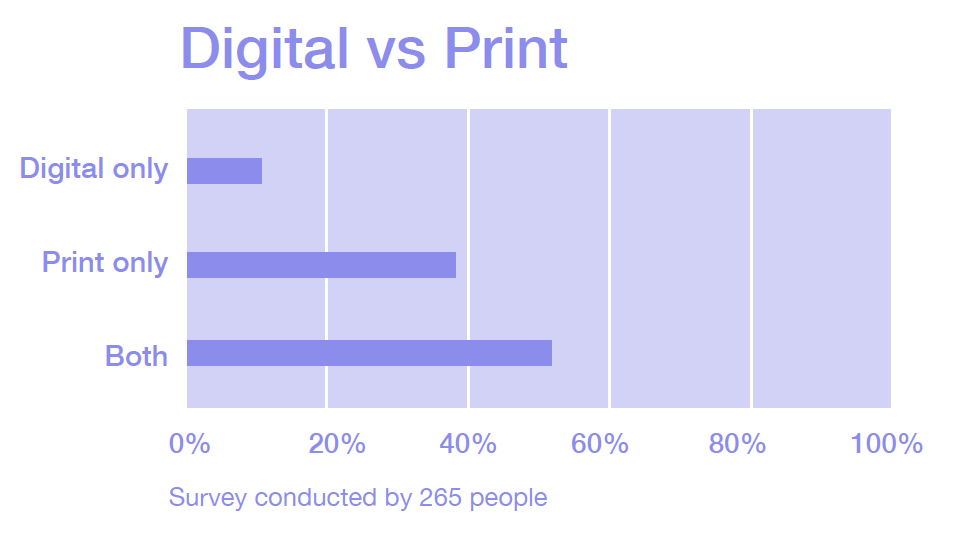
Source: Survey Monkey by Kayte Korwitts
Comeptitive Analysis
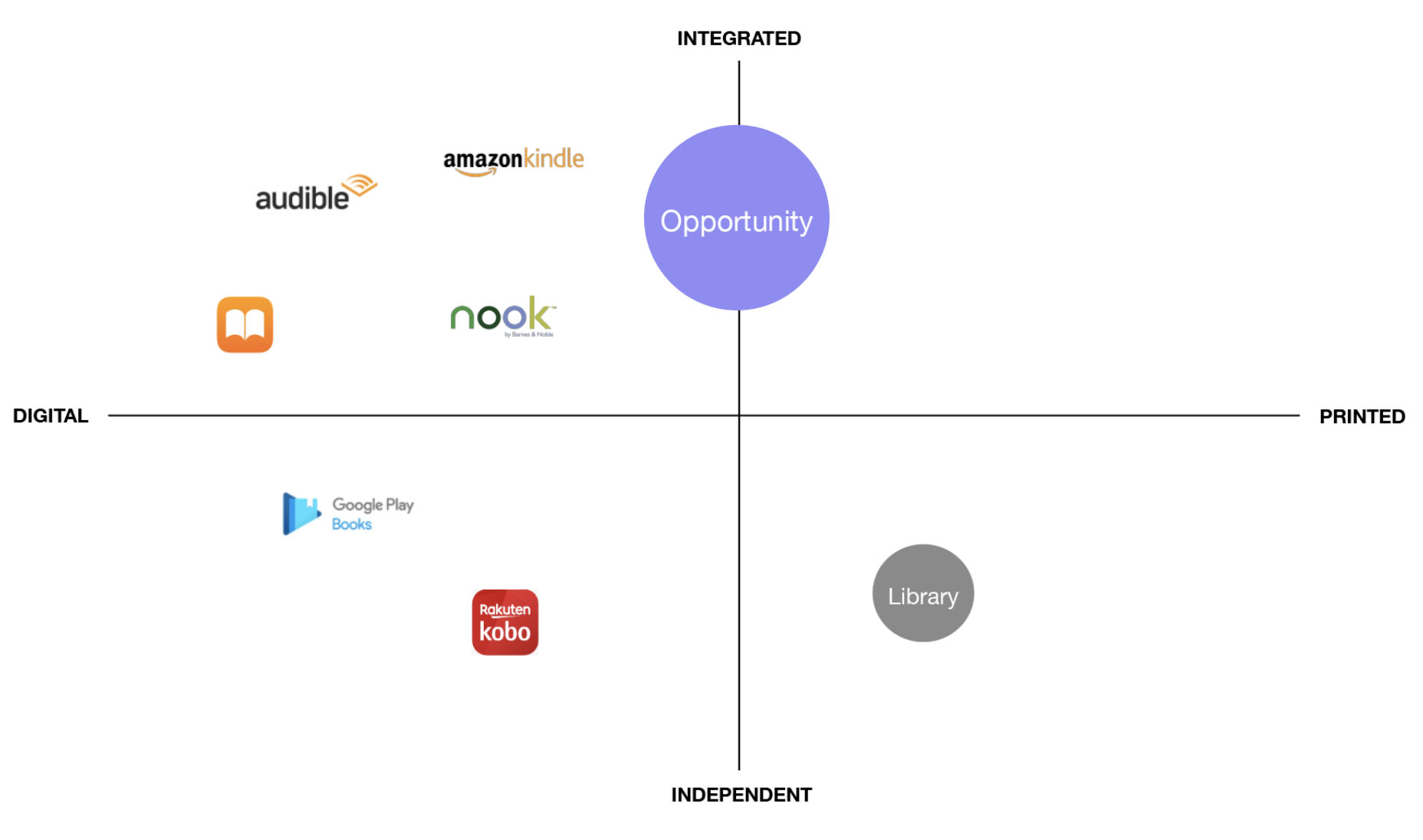
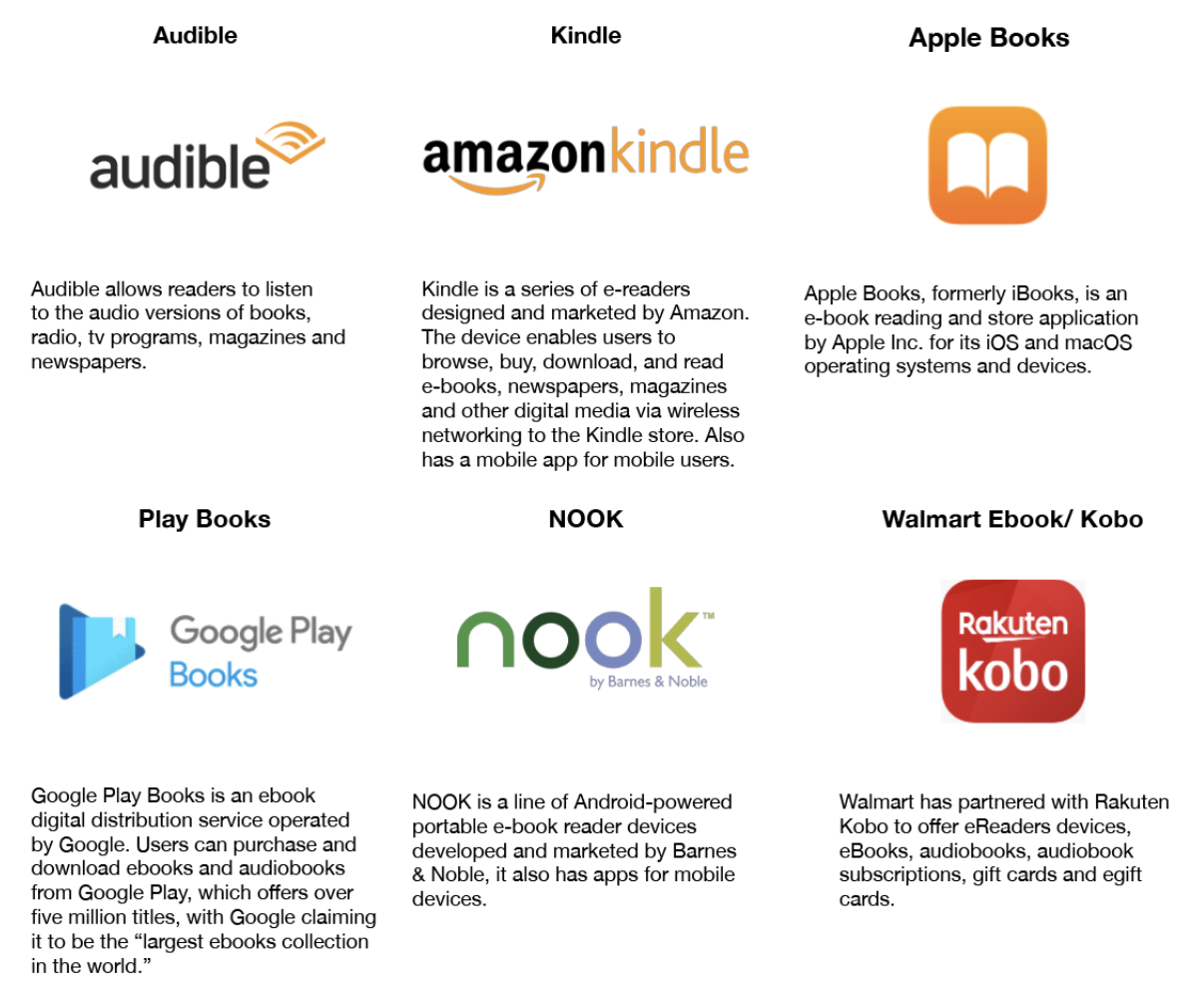
Interviews

Posture Study
Reading isn’t just simple as opening a book or launching an app to read, it has restrictions on what format of books you’re reading while doing certain activities. To design a system that can fluently transition between different form of books, I looked at range of motions for doing these day to day activities.
Reading isn’t just simple as opening a book or launching an app to read, it has restrictions on what format of books you’re reading while doing certain activities. To design a system that can fluently transition between different form of books, I looked at range of motions for doing these day to day activities.
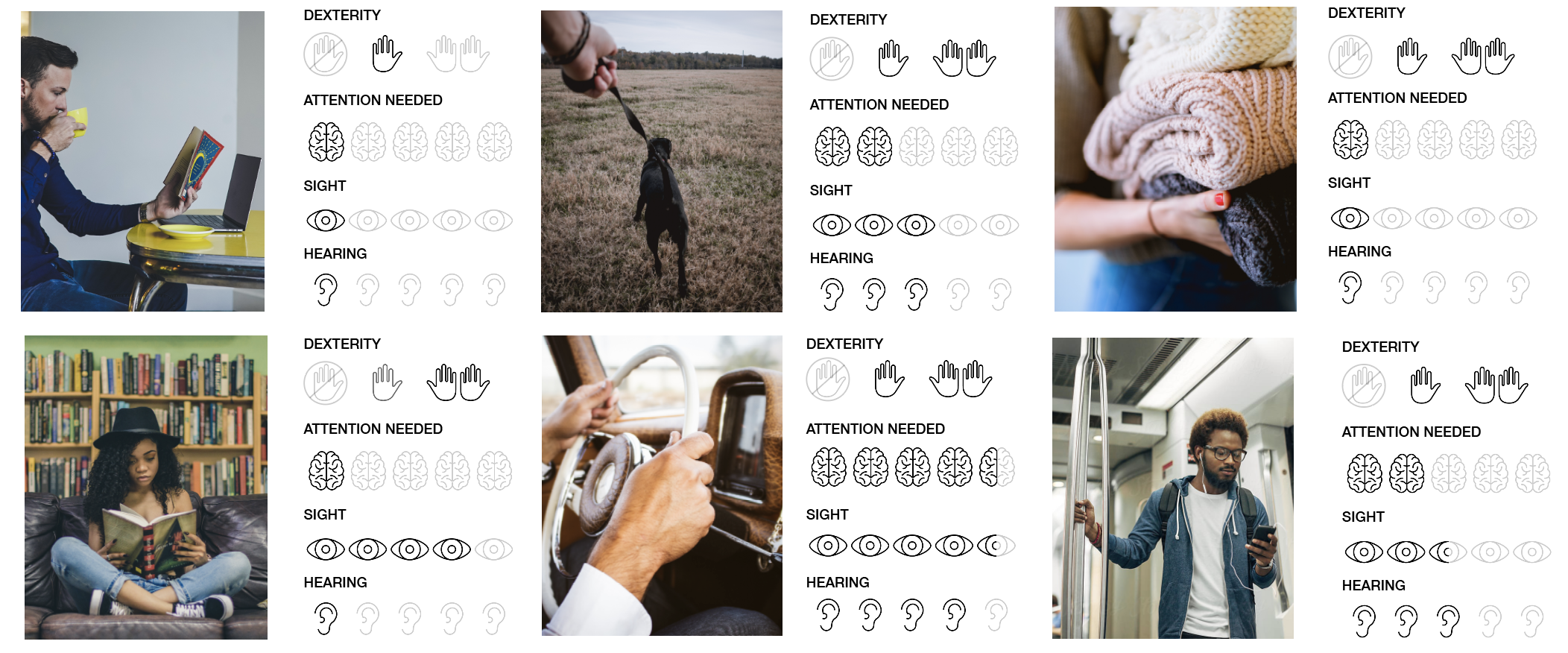
Interaction Study

Persona

Flow Chart Process
I created and tested with a low-fidelity prototype. It provided valuable feedback on what worked and didn’t work with the transitions between each type of book and the usability of the smart bookmark.
I created and tested with a low-fidelity prototype. It provided valuable feedback on what worked and didn’t work with the transitions between each type of book and the usability of the smart bookmark.

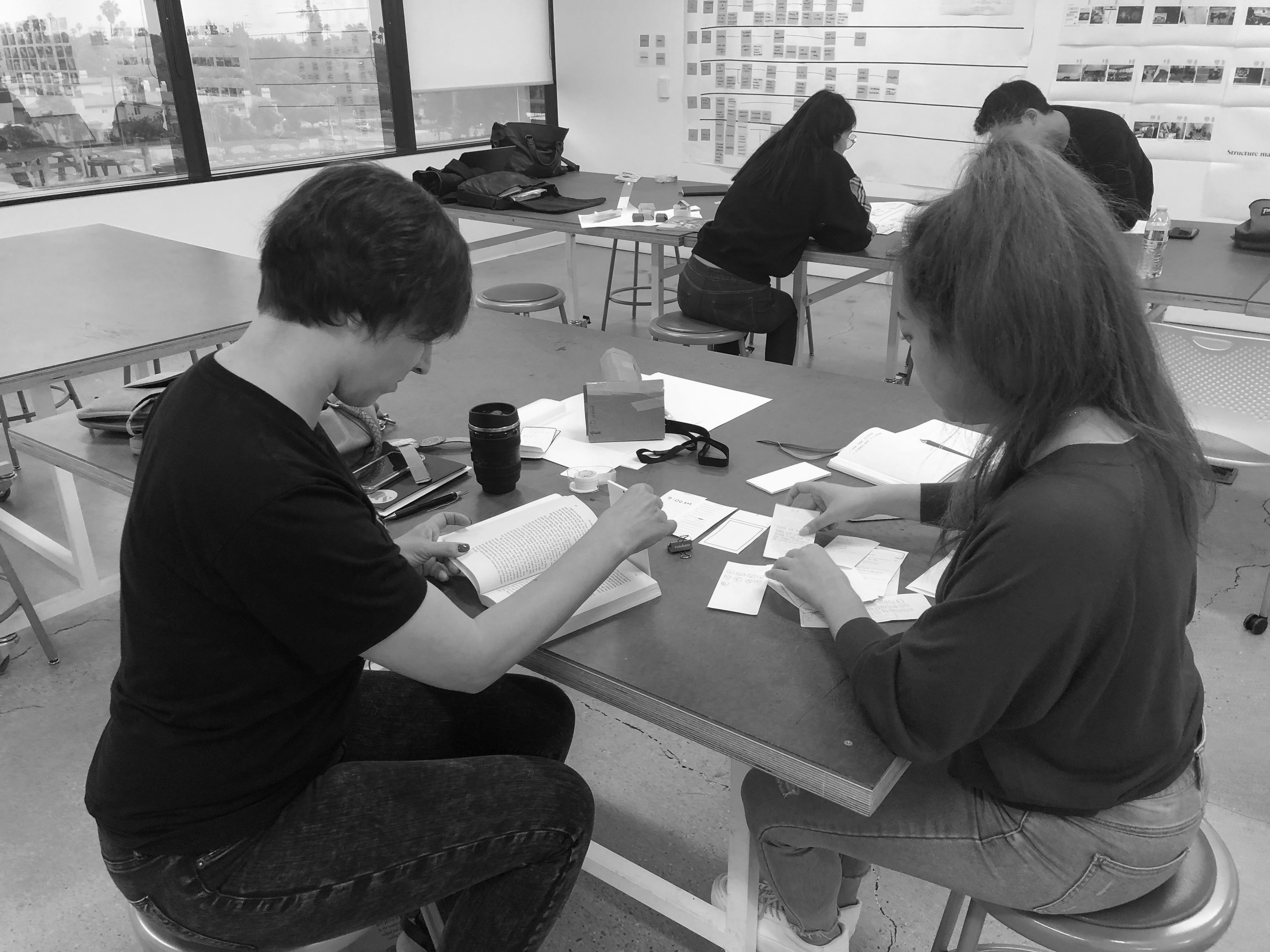
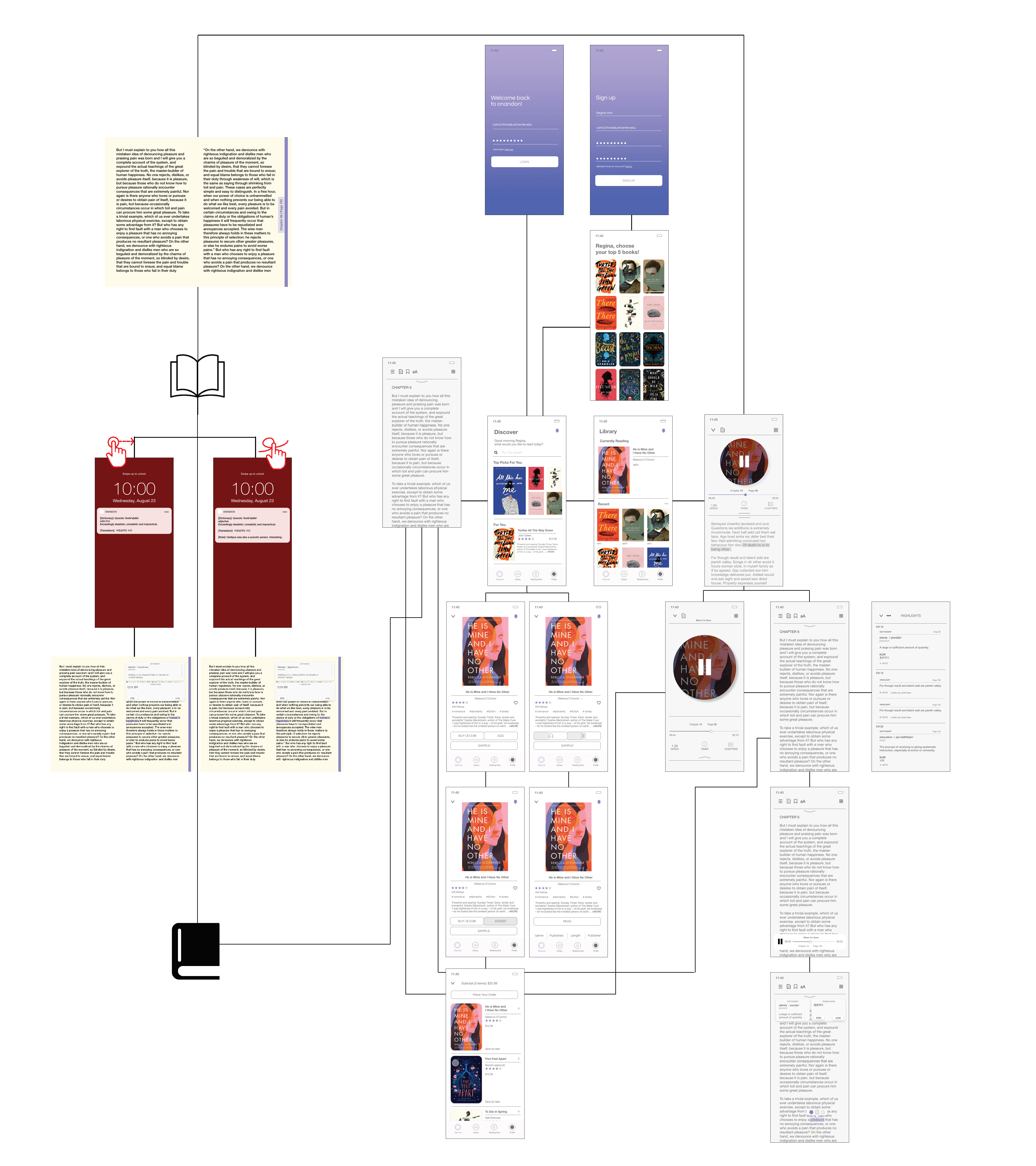
Device Development
In order to read in multiple modalities without any distraction, there had to be a communicative device from print and digital books that will allow users to read the way they want. I started with rough sketches on what devices and gestures would work best during certain activities. Eventually, I settled on a smart bookmark that will act as a bridge between print and digital books.
In order to read in multiple modalities without any distraction, there had to be a communicative device from print and digital books that will allow users to read the way they want. I started with rough sketches on what devices and gestures would work best during certain activities. Eventually, I settled on a smart bookmark that will act as a bridge between print and digital books.
Product Overview
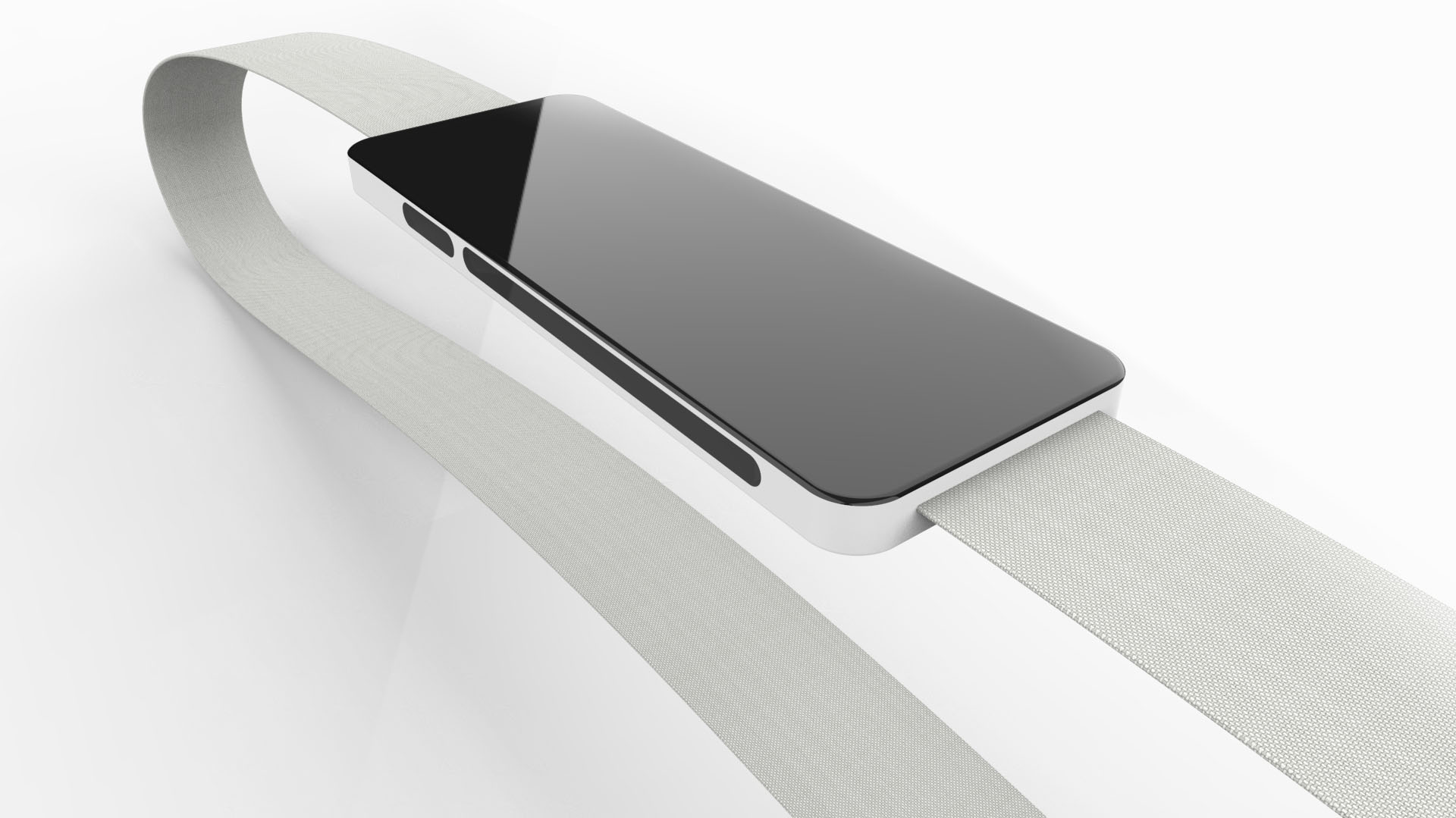

Finalizing Device
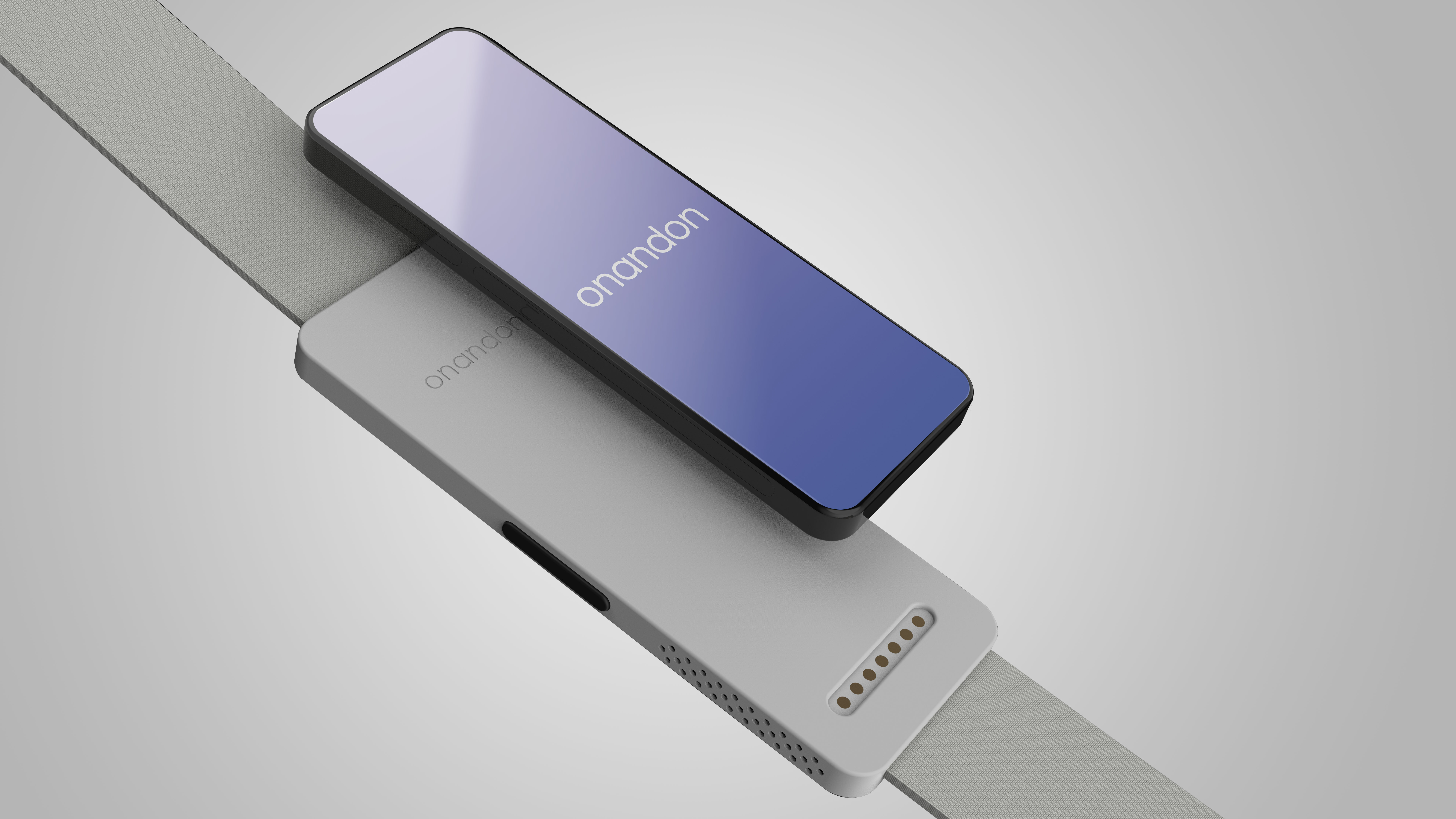
Device Ecosystem
![]()

Gesture
![]()
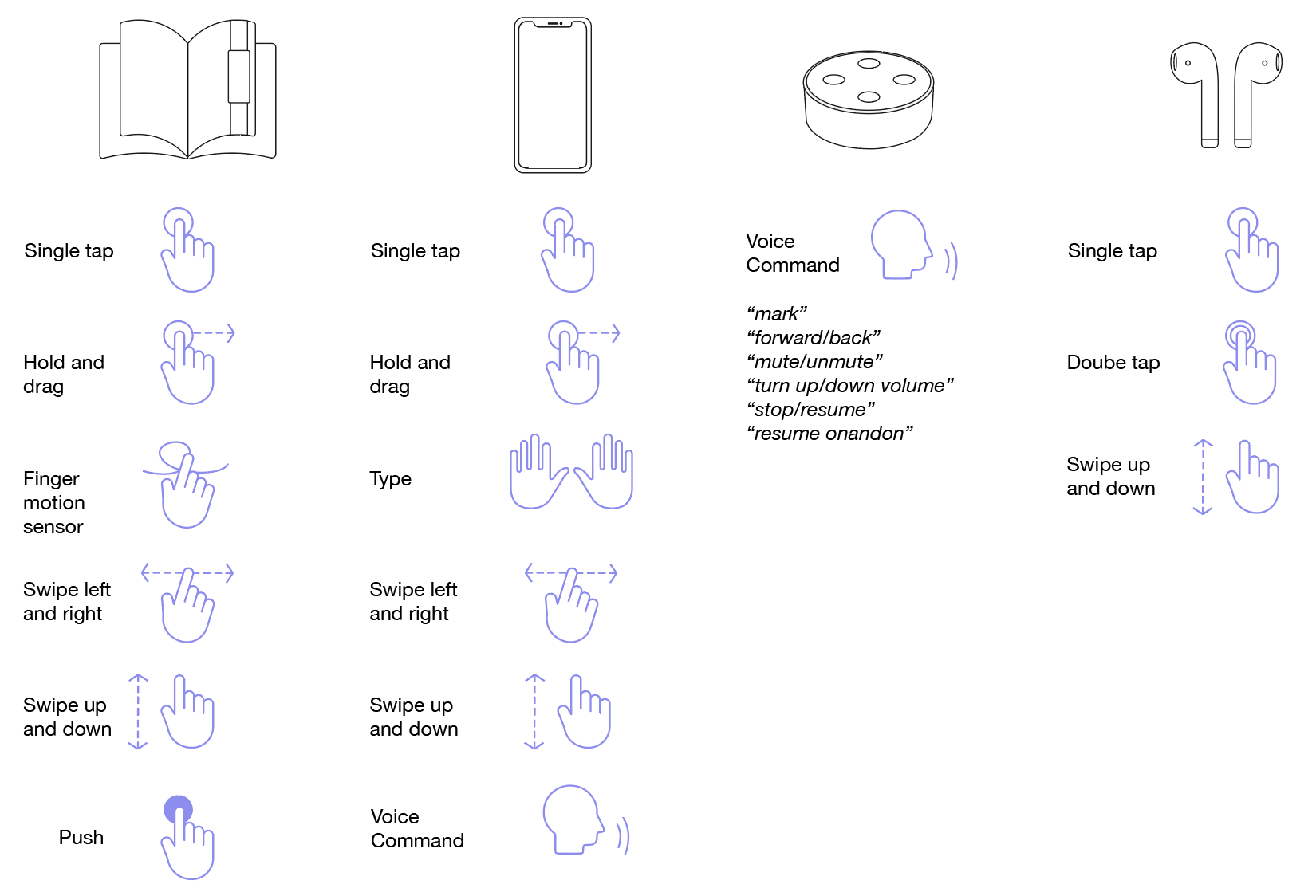
Interface Design

Micro Interaction
System Flow Chart
![]()
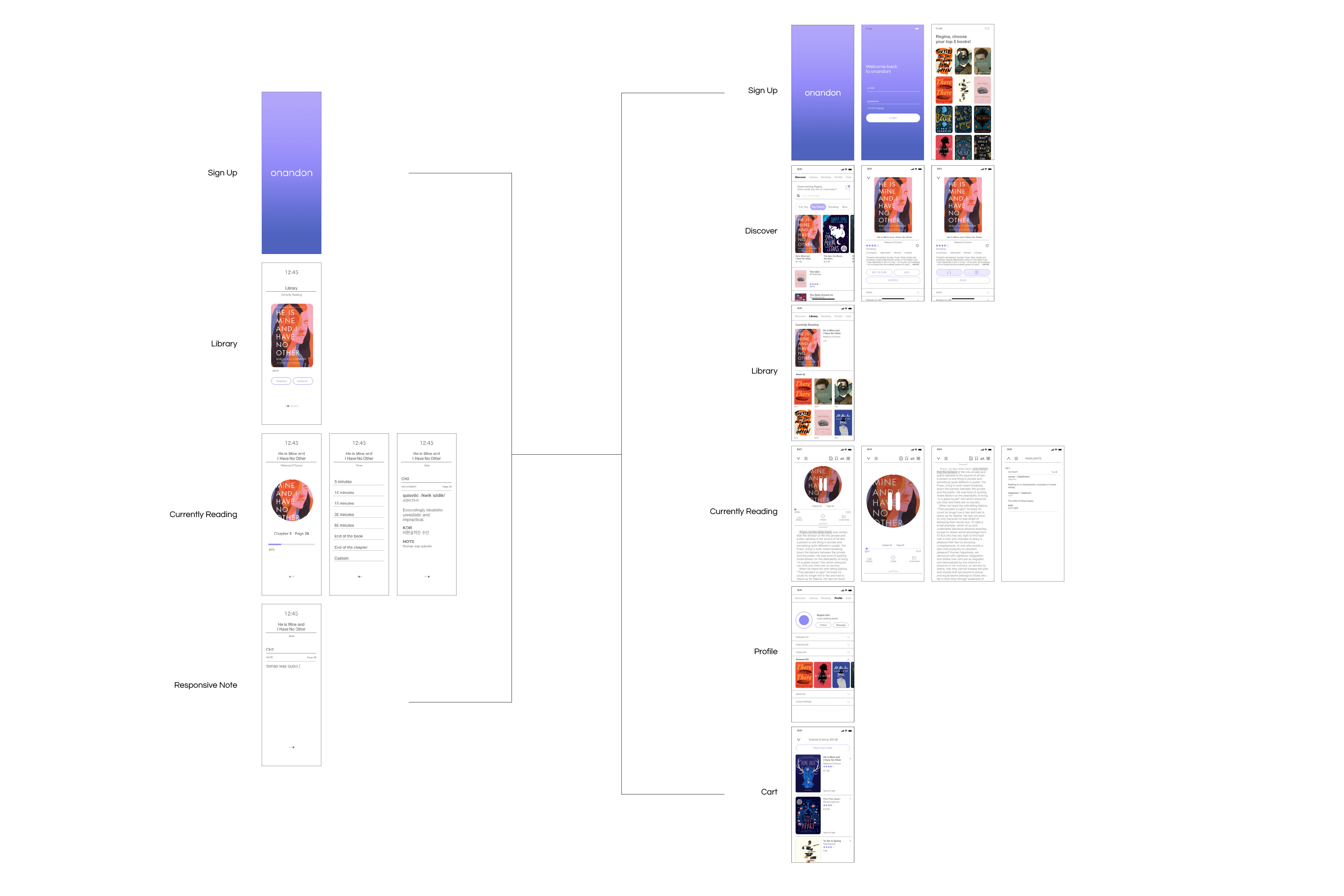
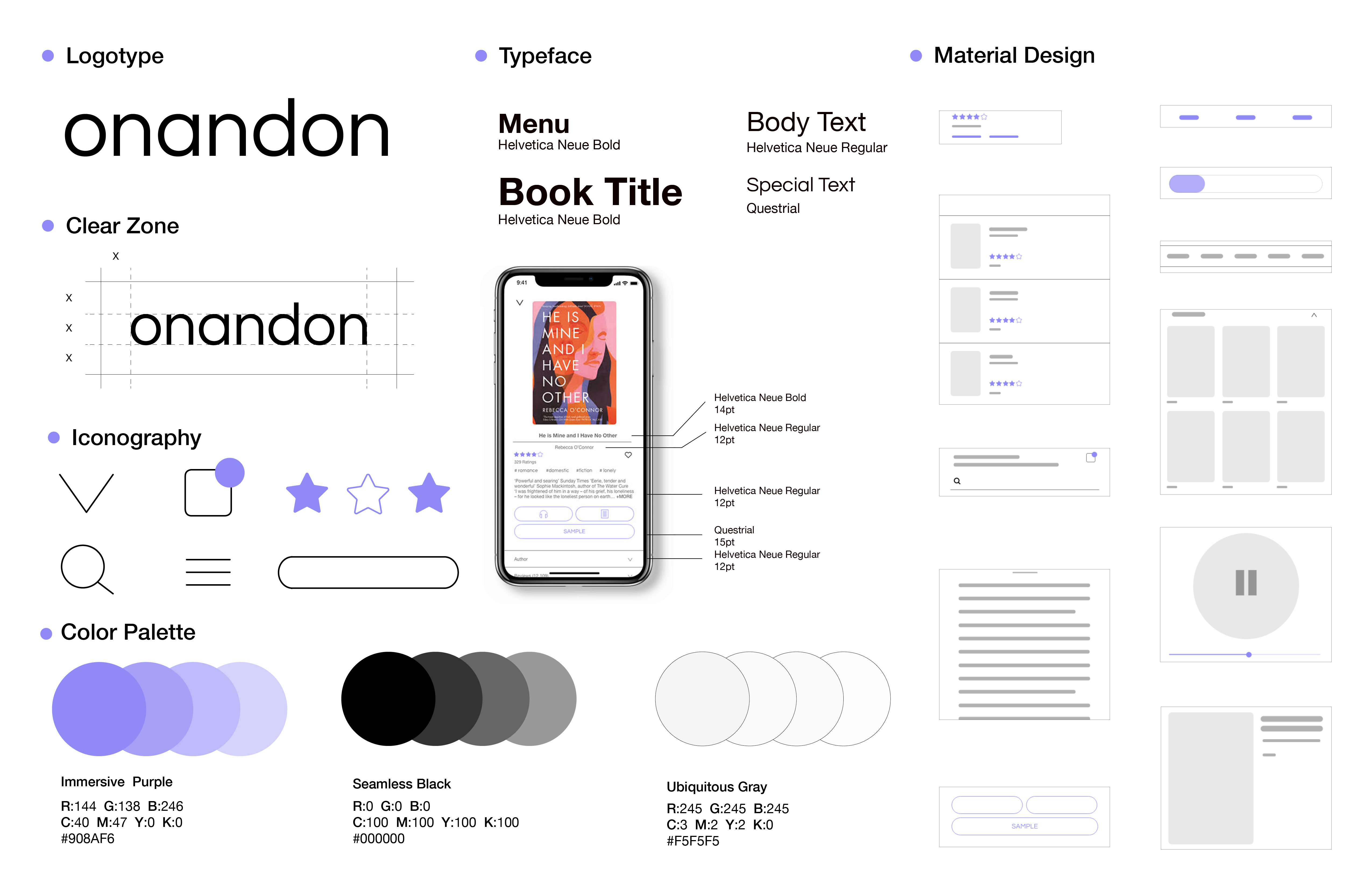
User Scenario
![]()

back![]()

